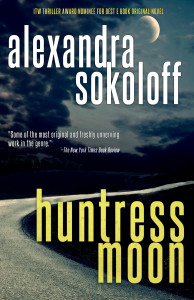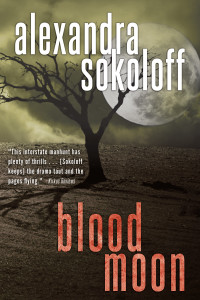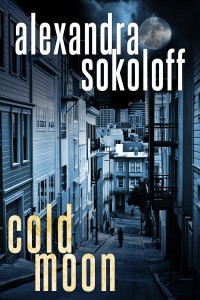Talking Serial Killers – Vol 1
Back in January I kicked off the year with a Q&A with Hellbound author David McCaffrey. David’s book put a real twist on the Serial Killer story and got me thinking about how I (as a reader) viewed books about serial killers. So I asked the question:
Why do you think we (as readers) enjoy serial killer stories given the reality is such a horrific concept?
I was quite happy with this question and have revisited it several times through the year. What has fascinated me has been the variety of responses I have received so I thought I would collate a few of them in a single post:
F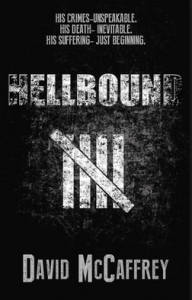 irst is David McCaffrey’s reply:
irst is David McCaffrey’s reply:
I think we’re fascinated with the concept of absolute evil and how someone can become so devoid of empathy and remorse. There could be many reasons for this fascination…it is because we feel sorry for the events that lead them to become that way? Is it because we sometimes see aspects of ourselves in their character? It’s acknowledged that you cannot have good without evil, light without darkness. And because of this, as readers, we find ourselves eager to see what horrific acts characters can get up to and what will be done to defeat them.
After all, are they not the more interesting? We seek to find those moments where we can feel affinity with the shadier side of human nature because, as a contradiction, it also makes us feel safe. We know that evil is simply an excuse for unacceptable behaviour and that, if the surface of it is scratched, like a poorly rendered wall it will crumble away.
I think we’ll always find evil personable because at its core, we need to believe that there is more to it than simply basic desire to cause harm and that such characters are more complex than that. That good and evil are but two sides of the same coin. As Obadiah Stark tells Father Hicks prior to his execution “Evil is simply live spelt backwards.”
You can read the full Q&A here: https://grabthisbook.net/?p=463
In April I got to chat with Sarah Hilary:
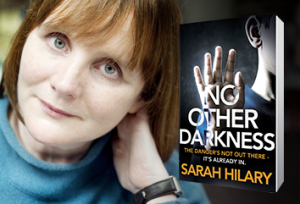 Why do you believe readers of crime fiction enjoy a serial killer story when the reality is such a terrible concept?
Why do you believe readers of crime fiction enjoy a serial killer story when the reality is such a terrible concept?
Perhaps because it’s such a terrible concept. I do my best writing when I’ve become obsessed with an idea — not always a crime, sometimes a human condition, or a social or psychological phenomenon — and I have to write through it to satisfy my curiosity, or my terror. I’m often motivated by fear, or rather by the need to confront the things that scare me. There’s the vicarious thrill aspect too, of course. The ‘how would I survive?’. And let’s face it, there are some extremely stylish and compelling stories out there. Hannibal is a prime example, as was True Detective — something about these stories attracts storytellers and creative geniuses (designers, editors, actors) perhaps because of the challenge involved. It’s hard to look away from the spectacle, apart from anything else. I’m working on an idea of this kind in Tastes Like Fear, and the story has me adrenalised—the closest I’ve come to the notion of a story that ‘tells itself’ because of the momentum involved in trying to keep pace with a serial killer.
My full interview with Sarah took place following the release of No Other Darkness and you can read it here: https://grabthisbook.net/?p=743
One final one for today. Neil White stopped by when his latest thriller The Domino Killer launched. He took my question and ran with a full guest post:
Neil White:
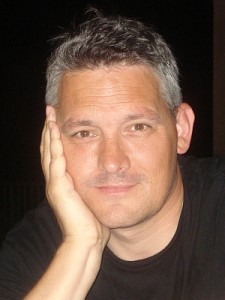 Why are readers attracted to serial killers?
Why are readers attracted to serial killers?
The answer is wider than that, because the question is really why are people attracted to serial killers. TV viewers devour factual shows that highlight the trail left behind by some maniac. Newspapers sell copies when a new mystery arises. The water cooler debates swell when there’s a new psychopath in town.
People are attracted to serial killers, so when readers turn to a book, it is no surprise that serial killer novels feature highly.
So why the attraction?
People are attracted to death. It’s why people peer over the edge of a cliff, even though they are scared of falling. They edge forward but the need to see over is compelling. But they don’t peer over the edge to see how nice the beach looks. They look to see how awful it would be to fall, to crash onto the rocks. Staring at death is life-affirming, re-assured by that quiet sigh of relief as you step back, safe again on the clifftop.
Then there’s the fascination with someone doing something they cannot comprehend doing, along with the vicarious tingle of fear.
People can understand some murders. The crime of passion, for example, or when violence goes too far when wearing the red mask of rage. But cold-blooded killings done just to satisfy an urge? Most people are not capable of that, cannot understand it, so it’s easy to be fascinated by someone who can plumb those dark depths.
Ian Brady described serial killers as the only brave ones in the world, because they are the ones who are fearless enough to give vent to their fantasies with no thought of the consequences. That’s complete nonsense, just grandiose boasting from a man who lives off scraps of infamy, but it’s an insight into his thinking, that it is all about the fantasy, about the lack of fear of the consequences, that the lack of empathy means that there is no thought for the victims. The victims are an irrelevance.
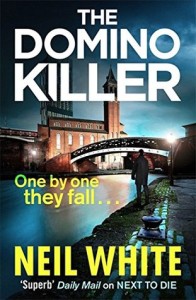 That is so different from the usual human experience. On the whole, people empathise, couldn’t hurt someone just for the pleasure of it. There usually has to be a reason, like hiding behind a war or political cause or because their emotions got the better of them. We can understand those reasons. We cannot understand the selfishness of a serial killer, so we are fascinated by people who behave differently.
That is so different from the usual human experience. On the whole, people empathise, couldn’t hurt someone just for the pleasure of it. There usually has to be a reason, like hiding behind a war or political cause or because their emotions got the better of them. We can understand those reasons. We cannot understand the selfishness of a serial killer, so we are fascinated by people who behave differently.
There is also the second reason, that tingle of fear.
We read thrillers to be thrilled, read horror to be horrified, read scary stories to be scared. We enjoy that fear, because we know it isn’t real. It’s some distant thing, a shiver to be relished, that we have been dragged into the dark world of the killer, are brushed by that madness.
But distance is the crucial thing. Ripper walks are an industry in London, where the crowd oohs and aahs as the guide describes how women were slaughtered, running his thumb up his body to show the track of the knife at the spots where they died. I confess that, even now, when I go to London, I find myself in Spitalfields at the end of the day, enjoying a pint in the Ten Bells, where Mary Kelly spent her last night, trying to evoke the feeling of how it must have been back then, looking for the shadows of the Ripper.
Imagine how you would fare if you tried to organise such a guided tour around Leeds and Bradford, where Peter Sutcliffe murdered his victims. It would evoke rage. It would be wrong. Too close. Too recent.
So distance is crucial. It has to be a remote fear, a view from afar, because we love the tingle of fear but we like to be safe, where no one really gets hurt. Crime thrillers do that. They allow a glimpse over the cliff edge, but fundamentally it’s for the relief when the killer is caught, when the book is closed and our own lives are untouched
My review of The Domino Killer is here: https://grabthisbook.net/?p=907

